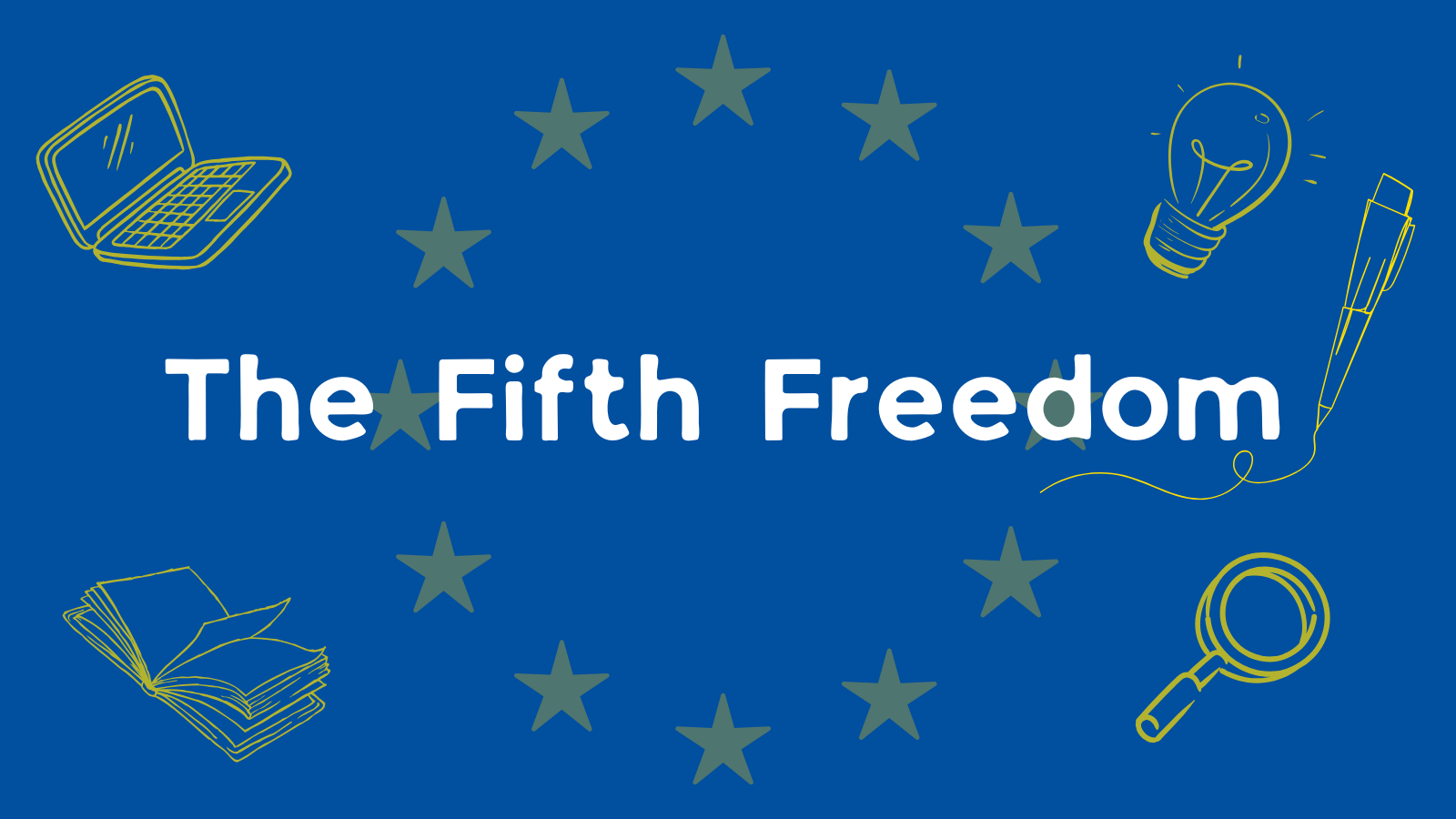The freedom of knowledge - a symbolic analogy to the Single Market freedoms - can strongly benefit the collective knowledge of the EU, but how can that be achieved?

The EU Single Market ensures free movement of goods, capital, services, and people—but not explicitly of researchers or knowledge. To strengthen research and innovation, a fifth freedom is needed: the free movement of knowledge.
In order to understand the concept of the fifth freedom, one must look back at its origins in the European Research Area (ERA) [1] launched in 2000 to create a single market for research, innovation, and technology. Since then, the ERA has boosted research infrastructures, eased researcher mobility, and improved access to scientific information. Its 2020 revamp broadened the vision, focusing on green and digital transitions, widening access to excellence, and better translating research into economic impact—all while deepening knowledge circulation. [2]
Looking ahead, the EU plans to adopt an ‘ERA Act’ by 2026 to formally establish and enshrine this fifth freedom of knowledge within its legal framework. This marks a shift towards a more legally binding approach, addressing barriers that voluntary collaboration alone has been unable to overcome. [3]
The concept was first introduced in 2007 by then-Commissioner Janez Potočnik, who sought to elevate knowledge as a strategic asset, reduce fragmentation, and enhance Europe’s competitiveness. It remains a guiding principle for ERA goals, especially mobility of researchers, data, and ideas across the EU. [4]
[1] Sturm, T. (2024). The EU’s Fifth Freedom: Why and how to develop the ‘Freedom of Knowledge.’ European Review, 33(1), 19–37.
[1] Sturm, T. (2024). The EU’s Fifth Freedom: Why and how to develop the ‘Freedom of Knowledge.’ European Review, 33(1), 19–37.
[2] Letta, E. (2024, April). Much More Than a Market.
[3] Sturm, T. (2024). The EU’s Fifth Freedom: Why and how to develop the ‘Freedom of Knowledge.’ European Review, 33(1), 19–37.
[4] Muradyan, V. (2024, May 5). How Europe can deliver on the freedom of movement of knowledge – future Europe Journal. Future Europe Journal.
2